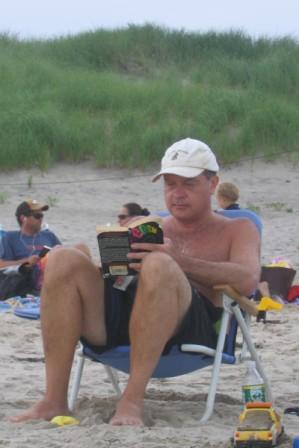 Le Souvenir De Vous Me Tue
Le Souvenir De Vous Me TueRobert Morton (~1430-1476)
The memory of you kills me,
My one treasure, when I cannot see you.
Because I swear to you upon my honor,
Without you my joy is lost.
When you are out of my sight,
I lament and cry out to myself;
Alone I remain, bereft of soul,
Receiving no comfort
And so I shall suffer in silence
Until your return.
It's easy to think of people in the late middle ages as uncultured, ignorant and almost
proto-human, simply because they lived in the dark ages. But they were people too, subject to the same heartaches and hopes that we all have, that have always characterized the human condition.
That song was one of the many to come from the court of
Phillip the Good, Duke of Burgundy. And he was good, a noted
patron of the arts, music and culture. Burgundy prospered under his leadership because it was seen as a leading center of
innovation and learning.
I have never been much of a fan of medieval music because the idiom is so limited. It tends to be simplistic and monochromatic, so I don't actively seek it out. But sometimes I happen across a recording like this, and it fairly takes my breath away with it's beauty, intimacy and gentleness. It's a fine reminder that love
transcends the ages and that we have more in common with the people of those distant times than we normally would imagine.
Listen to it for free or download it for a farthing or two from
magnatune.com
So listen, enjoy and be transported.
Labels: medieval




